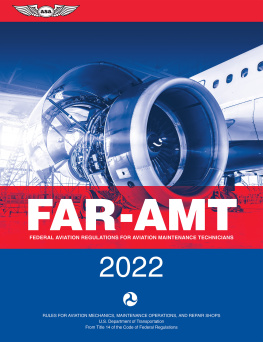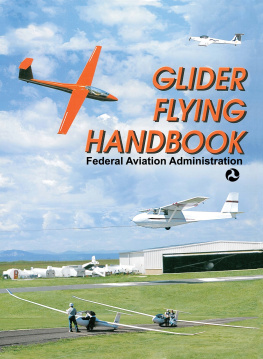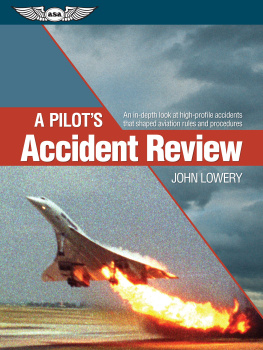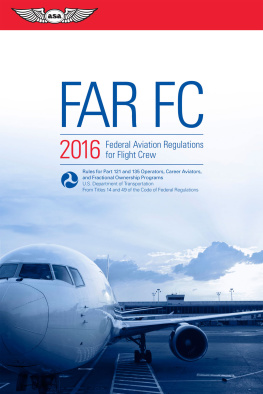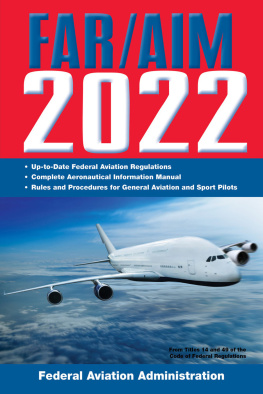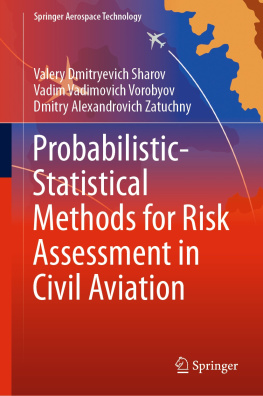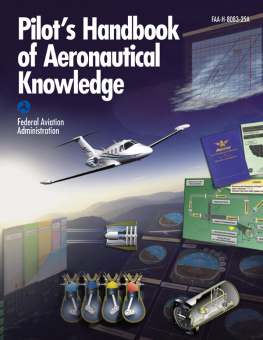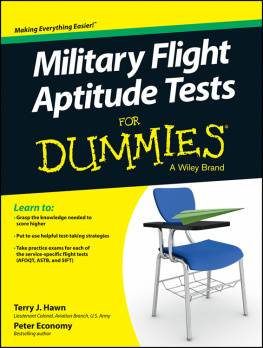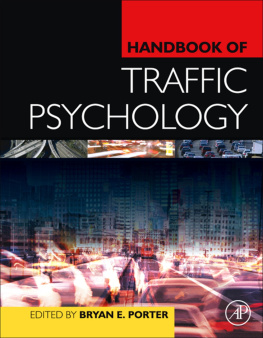AEROMEDICAL PSYCHOLOGY
We dedicate this volume to our mentors in aeromedical psychology, Dr. Barton Pakull, Dr. Tony McDonald and Dr. Jeffrey Moore, who inspired us with their enthusiasm, passion for aviation and knowledge, and to our families and friends, for their support and sacrifices.
Aeromedical Psychology
Edited by
CARRIE H. KENNEDY
University of Virginia, USA
&
GARY G. KAY
Cognitive Research Corporation, USA
ASHGATE
Carrie H. Kennedy and Gary G. Kay 2013
All rights reserved. No part of this publication may be reproduced, stored in a retrieval system or transmitted in any form or by any means, electronic, mechanical, photocopying, recording or otherwise without the prior permission of the publisher.
Carrie H. Kennedy and Gary G. Kay have asserted their right under the Copyright, Designs and Patents Act, 1988, to be identified as the editors of this work.
Disclaimer
The views presented in this book are those of the authors and do not reflect the official policy or position of the U.S. Air Force, U.S. Army, U.S. Marine Corps, U.S. Navy, the Department of Defense, the U.S. Government, or any other institution with which the authors are affiliated.
Published by
Ashgate Publishing Limited
Wey Court East
Union Road
Farnham
Surrey, GU9 7PT
England
Ashgate Publishing Company
110 Cherry Street
Suite 3-1
Burlington, VT 05401-3818
USA
www.ashgate.com
British Library Cataloguing in Publication Data
Aeromedical psychology.
1. Airlines--Employees--Psychological testing. 2. Air pilots, Military--Psychological testing 3. Astronauts--Psychological testing. 4. Aviation psychology. 5. Aircraft accidents--Human factors.
I. Kennedy, Carrie H. II. Kay, Gary G.
629.1325019-dc23
ISBN: 978-0-7546-7590-7 (hbk)
ISBN: 978-0-7546-7594-5 (ebk-PDF)
ISBN: 978-1-4724-0125-0 (ebk-ePUB)
The Library of Congress has cataloged the printed edition as follows:
Kennedy, Carrie H.
Aeromedical psychology / by Carrie H. Kennedy and Gary G. Kay.
p. cm.
Includes bibliographical references and index.
ISBN 978-0-7546-7590-7 (hardback) -- ISBN 978-0-7546-7594-5 (ebook) -- ISBN 978-1-4724-0125-0 (epub) 1. Aviation psychology. 2. Flight crews--Psychology. I. Kay, Gary G. II. Title.
TL555.K46 2013
629.13252019--dc23
2012047567
Contents
Tatana M. Olson, Mathew McCauley and Carrie H. Kennedy
Brennan D. Cox, Lacey L. Schmidt, Kelley J. Slack and Thomas C. Foster
Gary G. Kay, Andrew J. Thurston and Chris M. Front
Robert W. Elliott
Carlos R. Porges
Arlene R. Saitzyk, Christopher A. Alfonzo, Timothy P. Greydanus, John R. Reaume and Brian B. Parsa
Chris M. Front
Erik Viirre and Jonathan B. Clark
J. Lynn Caldwell and John A. Caldwell
Gary G. Kay
Randy Georgemiller
Bradford C. Ashley and Gary G. Kay
Idit Oz and Orit Lurie
Peter B. Walker, Paul OConnor and William L. Little
Trevor Reynolds
List of Figures
List of Tables
Preface
From a 12-second flight by the Wright Brothers in 1903 to the jet aircraft, space travel, and unmanned aerial systems of today, the field of aviation continues to develop. With these technological advances, so too has aerospace medicine advanced. Flight surgery dates back to World War I when the mental and physical health of fliers became paramount. For the last century aerospace medicine has grown from the practice solely of physicians to include psychologists, physiologists, and optometrists.
All of these specialists work together, to select the best individuals for flight status, to maintain their health in that status and to optimize their performance. Aeromedical psychology represents the practical application of psychology to the safety and effectiveness of recreational, commercial, and military aviation. For those psychologists working with individuals with flight status, this application may include mental health screenings or evaluations in the context of assessment and selection. When appropriateness for continued flight status is questioned, psychologists are engaged in the construction of treatment plans designed to return the aviator to flight status and which comply with a variety of aeromedical policies. In addition, aviation psychologists provide crisis response following flight mishaps in a culturally competent manner, and participate in mishap investigations.
With continuing developments in both technology and advancing medical/mental health options and consequent evolving policies for those with flight status, an edited work was required which tapped the expertise of a wide range of individuals and with an international perspective. Each contributor was selected in recognition of their individual expertise and their documented work in their specialty area and we are indebted to their commitment to the construction of this volume. They have enabled us to provide a comprehensive manual which includes guides on conducting mental health, substance abuse, and neuropsychological evaluations, policies regarding psychotropic medications, and issues related to fatigue, airsickness, fear of flying, and aging aviators. The manual concludes with a chapter on developing competency in this specialized area. We present this volume as a guide to the field and to the growing role of aeromedical psychologists.
Chapter 1
A History of Aeromedical Psychology
Tatana M. Olson, Mathew McCauley and Carrie H. Kennedy
Since the Wright Brothers conducted the first sustained flight with a powered, controlled aircraft on 17 December 1903, scientists have been fascinated with the role of the human in aviation. Scientific advancements in our knowledge of human cognition and physiology, as well as in aircraft capabilities, stimulated the need to better understand the humanaviation interface. History has shown that psychologists around the world significantly contributed to this understanding, providing analytical expertise and developing effective tools and methods.
The concept of aviation psychology has evolved over time. For example, in 1941 Razran and Brown (322) stated the psychology of aviation comprises the selection, training, and maintenance of personnel (pilot, crew, and ground staff) and the care and education of passengers. Aeromedical psychology now represents an integration of aviation medicine and clinical psychology, and involves the application of clinical psychology principles, methods, and techniques to address individual and group issues within the aviation community (King 1999). The role of the aeromedical psychologist has also evolved over the years, encompassing traditional clinical concerns about mental disorders, personality dynamics, the assessment and selection of aviators, maintenance of mental health, and action concerning medical qualification or disqualification throughout an aviators career (Bor and Hubbard 2006; Jones and Marsh 2001). Please note that for the purposes of this volume, aeromedical psychology, aerospace psychology, and aviation psychology are used interchangeably.
As an applied science, aerospace psychology focuses on human functioning within civilian and military aviation. However, given their shared roots, the history and growth of clinical psychology, aeromedical psychology, and aviation medicine are closely linked, and like many scientific fields of the last century (Kennedy, Hacker Hughes and McNeil 2012), they evolved to meet the needs of various militaries, particularly during World War I (WWI) and World War II (WWII).
Next page

